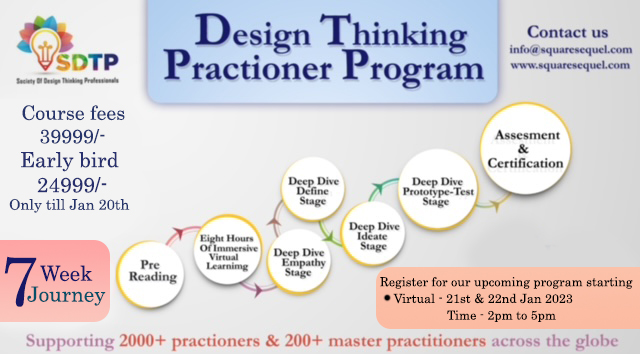The utilization of behavioral and competency-based indicators is a mainstay strategy in evaluating candidates’ potential and fit for a role. Rooted in the belief that past performance is a reliable predictor of future success, these indicators delve deep into candidates’ knowledge, skills, abilities, and characteristics vital for job performance. Organizations can set clear expectations and foster equitable assessment processes by meticulously identifying and defining the specific competencies required for each position.
A fundamental belief lies at the core of the competency approach: ‘Actions speak louder than words.’ While individuals may articulate their motives and skills, the true measure of their capabilities lies in their actions, particularly in critical incidents they have faced. One such technique designed to extract insights into candidates’ past behaviors and experiences is the Behavioral Event Interview (BEI). By prompting candidates to recount specific incidents and describe their actions, BEI aims to unveil their genuine responses and problem-solving approaches.
Research conducted by the Society for Human Resource Management (SHRM) revealed that organizations that incorporate behavioral and competency-based assessments into their hiring processes experience higher rates of employee performance and retention.
In integrating competency and behavioral indicators with BEI, organizations can enhance the effectiveness of their talent acquisition processes. By crafting interview questions that align with specific behaviors or competencies, recruiters can glean valuable insights into candidates’ capabilities and potential cultural fit. Through this synergistic approach, organizations can streamline their hiring efforts and select candidates who not only possess the requisite skills but also embody the values essential to organizational success.
Let’s sail through the depths of BEI.
What is a Behavioral Event Interview (BEI)?

Behavioral event interviewing (BEI) is strategically designed to reveal crucial insights into a candidate’s past behaviors and performance. The candidates are prompted to recount specific incidents or scenarios from their professional history, detailing their actions, decisions, and responses in challenging situations. The efficacy of BEI lies in its ability to go beyond theoretical knowledge or hypothetical scenarios and provide tangible evidence of candidates’ capabilities based on real-life experiences. This structured method allows interviewers to assess candidates’ suitability for a role with greater accuracy and confidence, ultimately facilitating more informed hiring decisions.
Origin and Journey of BEI So Far

The origins of BEI can be traced back to the 1970s when American psychologist David C. McClelland devised this method. McClelland, known for his contributions to understanding human behavior and motivation, introduced BEI as a structured approach to uncover the underlying drivers behind individuals’ actions and behaviors.
McClelland’s conceptualization of behavior, knowledge, and skills likened them to an iceberg, where only a fraction is visible above the surface, representing tangible actions and capabilities. Beneath the surface lies a vast trail of opinions, values, qualities, and motivations that influence behavior but are often unseen.
Over the years, Behavioral Event Interviewing (BEI) has evolved significantly, adapting to changing organizational dynamics, advancements in psychology, and the evolving needs of the hiring process.
Refinement of Methodology
Since its inception, BEI has undergone continuous refinement in its methodology. The original framework devised by McClelland has been augmented with additional techniques and best practices to improve its reliability and validity in predicting future performance based on past behavior.
Integration of Technology
With the advent of technology, BEI has embraced digital tools and platforms to streamline the interview process. Online platforms and video conferencing technologies have made it easier to conduct BEI sessions remotely, allowing for greater flexibility and accessibility.
Incorporation of Diversity and Inclusion Principles
In response to the growing emphasis on diversity and inclusion in the workplace, BEI has evolved to incorporate principles of bias mitigation and equitable assessment. Interviewers are trained to recognize and mitigate unconscious biases that may influence their evaluation of candidates, ensuring a fair and objective assessment process.
Alignment with Competency Frameworks
BEI has increasingly been aligned with competency frameworks adopted by organizations to define the skills, behaviors, and attributes essential for success in specific roles. By aligning BEI questions with these competency frameworks, interviewers can ensure that the assessment is closely aligned with organizational goals and priorities.
Integration of Behavioral Science Insights
As our understanding of human behavior has deepened, BEI has benefited from insights gleaned from behavioral science research. Interviewers leverage principles from psychology and sociology to craft more insightful questions and interpret candidates’ responses more effectively, enhancing the predictive validity of the assessment.
Customization for Different Industries and Roles
Recognizing that different industries and roles have unique requirements, BEI has evolved to accommodate varying contexts and job demands. Interviewers may tailor the BEI process to align with the specific competencies and performance indicators relevant to each role, ensuring that the assessment remains relevant and impactful.
Emphasis on Continuous Improvement
Finally, BEI has embraced a culture of continuous improvement, with organizations and practitioners constantly seeking ways to enhance the effectiveness of the interview process. Feedback mechanisms, training programs, and quality assurance protocols are implemented to identify areas for improvement and refine the BEI methodology over time.
The long-term benefits of effective behavioral interviewing, such as reduced turnover costs and improved selection outcomes, underscore the significance of embracing this approach in talent assessment practices. As organizations strive to build high-performing teams and achieve their strategic objectives, leveraging behavioral interview questions becomes a vital component of a comprehensive and effective hiring strategy.
Sample Behavioral Event Interview

Anyone who wants to conduct an effective interview needs to know that past behavior is the key to predicting future performance. A candidate’s qualifications, experiences, and previous posts they’ve held are all important details that you need to know. But the unanswered question is: how will they perform in the precise job you’re advertising?
Rather than using intuition, an interviewer can use the questioning techniques demonstrated in this program to retrieve relevant information based on a candidate’s past experiences.
Behavioral interviewing is suitable for managers, supervisors, and personnel specialists. Through realistic interview scenarios, it teaches the five stages of the behavioral interviewing technique and shows the importance of conducting a thorough review of the job requirements, drawing up a list of interview questions, getting behavioral examples in the interview, and then rating the interviewee’s skills against the job specification.
Total number of people – 5
Prakash – The employee on his way out
Rahul – IT Manager
Pragati- HR Manager who focuses on new recruitments, and interviews
Manav – Candidate #1 to fill in Prakash’s position
Kriti – Candidate #2 to fill in Prakash’s position
Scene 1 – Rahul, Prakash, and Pragati
Rahul – So, Prakash, I’m sorry, it didn’t sort of work out like we, umm, I mean, these things happen. It’s not like it’s anybody’s fault. It’s just well, no reflection on… Do you know what I mean?
Prakash – No!
Rahul – Exactly. So thanks anyway and good luck.
(Prakash walks out slamming the door)
Rahul – Ughhh…. (Knock on the door). What!
Pragati walks in with two cups of coffee.
Rahul – Hi, Prakash’s replacement, we’re down to two candidates, right?
Pragati- Yeah, Kriti Seth, and Manav Bhargava.
Rahul – Uhhh…
Pragati- What’s the matter?
Rahul – I hate departure interviews, especially with people I’ve just sacked.
Pragati- You’d be used to it by now.
Rahul – Oyi, don’t rub it in.
Pragati- How long was Prakash here?
Rahul – A little under four months? Maybe I’ll have more luck this time.
Pragati- Luck. Did you say luck?
Rahul – Yes, luck. How was I supposed to know that Prakash would turn out to be such a problem?
Pragati- Well, you interviewed him.
Rahul – Yes, I know that!
Pragati- And you insisted on doing it on your own.
Rahul – Yes, I know. But there are certain things you can’t spot in an interview.
Pragati- Such as?
Rahul – Well, how do they fit in with the team? Or they’ll behave?
Pragati- Well, not if you don’t ask, no!
Rahul – Although I asked all the right questions. He seemed fine.
Pragati- And?
Rahul – He just got the other departments’ backs up, couldn’t see beyond his job, and treated the other managers like they were in the sales. And of course, nothing was ever his fault. It was always somebody else who’d had them done.
Pragati- And you couldn’t have found that out when you interviewed him?
Rahul – No way.
Pragati- Did you draw up a list of what you were looking for?
Rahul – Of course, I am a trained Manager. I did the selection interview course.
Pragati- And what was on the list?
Rahul – Range of equipment to work with, knowledge of business programs, experience with servers.
Pragati- What about personal qualities? Like how he gets on with people?
Rahul – You can’t find that in an interview?
Pragati- Are you sure?
Rahul – Absolutely. (a pause) Can you?
Pragati- Well, some people can.
Rahul – Oh, you mean psychics?
Pragati- No, people who know the technique.
Rahul – There’s a technique.
Pragati- It’s called Behavioral Event Interviewing.
Rahul – Another piece of HR jargon.
Pragati- But it works.
Rahul – How?
Pragati- You listed what you needed in professional terms. Now list the personal qualities, what sort of person are you looking for? Draw up a behavioral profile. So what personal qualities must the candidate have?
Rahul – Well, intelligent, efficient, calm under pressure, good people skills, creative, enterprising, and a natural leader.
Pragati- Right? What if the Archangel Gabriel hasn’t applied for the job?
Rahul – Sorry?
Pragati- If you’re looking for perfection, you’re never going to fill the post. You need to look at the key qualities, the ones that spell disaster if they’re missing.
Rahul – Oh, well, they’ve got to be up with the latest technology. No, the product range experience within those servers.
Pragati- No, those aren’t behavioral qualities. They could have all of those and still be a disaster. Like Prakash. Look, your unit has a really good reputation, doesn’t it? Apart from selection skills, I mean.
Rahul – Oh, yeah. Okay.
Pragati- So what makes it special, different from the run-of-mill IT units?
Rahul – Well, I’ll tell you. We’re very informal. We’re very open. We’re always talking to the departments we serve. They, like valued customers, ask them what they’d like, discuss new software purchases with them, and arrange maintenance agents to sit them, with maximum flexibility.
Pragati- And that’s unusual.
Rahul – Almost unheard of. Most IT managers see themselves as keepers of a lunatic asylum.
Pragati- Anything else?
Rahul – Yes, we spend a lot of money. So you’ve got to be good at getting value and accepting responsibility. That was one of the biggest problems. Nothing was ever his fault.
Pragati- Right, now we’re getting somewhere. Let’s focus on the qualities that rule a candidate out if they haven’t got them, the “deal breakers.” Now they seem to be consulting with others on flexible planning, good cost controlling, and accepting responsibility.
Rahul – Right.
Pragati- Anything else?
Rahul – But quite a few, I suppose. But those are the real deal breakers.
Pragati- So why didn’t you find out about those with Prakash?
Rahul – I did as much as you can.
Pragati- Really?
Scene 2 – Rahul Interviewing Prakash
Prakash – I did the manufacturer’s new software maintenance course as well.
Rahul – It’s good. Excellent. Now this job requires a lot of consultation with other departments, are you good at the consultation?
Prakash – I certainly am.
Rahul – Because it’s very important.
Prakash – I couldn’t agree more, name of the game.
Rahul – Have you had much experience of it? In your present job?
Prakash – Absolutely, I do it all the time.
Rahul – Clear, tell me about your approach to planning.
Prakash – I always think of planning as the foundation of management.
Rahul – And what do you call good planning? Give me an example.
Prakash – Working out a good plan and sticking with it.
Rahul – And suppose some people didn’t like it?
Prakash – Well, they just…
Rahul – I mean, you’d agree that you’ve got to have a certain amount of flexibility, wouldn’t you?
Prakash – Oh, of course.
Rahul – So you’d adjust your plan? If it was causing real inconvenience to someone?
Prakash – Oh, yes, you have to?
Rahul – Good. Good. And you talk to people before drawing up a plan? Do check it out with the people affected? Do give everyone sufficient notice. Do you build in revision time? Are you good at keeping the timescales?
Prakash – Yes.
Rahul – I suppose someone should ball them out in front of the others or get them in to talk about it.
Prakash – Ooh… Get them in for a talk.
Rahul – Excellent. Well, that takes care of that. Now, cost controlling, are you good at that?
Prakash – I am actually, yes.
Rahul – And do you give early warnings to management? If you see you’re running into a budget problem? (a little pause) Well, I’m sure you do. Could you give me an example of a budget crisis you’ve had to deal with?
Prakash – I don’t think I’ve had any.
Rahul – No, come on, Prakash. Every experienced manager has had cost overruns. Unless they are wildly over budget.
Prakash – I see what you mean. Yes, we did have a problem in my previous job. There had been an underestimate of hardware requirements.
Rahul – Whose underestimates?
Prakash – Well, it was a mixture. (a tense pause)
Rahul – Anyway, these things happen. What did you do?
Prakash – Well, we produced a revised budget and presented it to the management. And they accepted it.
Rahul – So that was all right.
Prakash – Yes, no problem.
Rahul – Good. Now how about accepting responsibility?
Prakash – It goes with the territory, doesn’t it?
Rahul – I mean when things go wrong.
Prakash – Especially when things go wrong?
Rahul – Can you give me an example? Because there’s nothing worse than managers who blame everyone else?
Prakash – Wh.. what do you mean by an example?
Rahul – Well, some incident.
Prakash – What sort of incident?
Rahul – Any sort of incident where things went wrong?
Prakash – I don’t think it’s a question of incidents. I think it’s a question of attitude. Now, if you’re a manager, you have to accept that things are down to you. Not trying to wriggle out of it. The buck stops here, you know.
Rahul – Good point. A good point. Can you give me an instance of where you’ve handled conflict?
Prakash – Mmm… I can’t think of any actual instances off-hand.
Rahul – Well, I suppose you’ve got a lot of aggro from the line managers or something.
Prakash – Oh, I’d get them around the table and talk it through with them. It’s usually just a misunderstanding. Do you know what line managers are like?
Rahul – indeed I do, (Rahul chuckles). Well, I think that’s about it.
Prakash – Do you have any questions you’d like to ask?
Scene 3 – Rahul and HR
Rahul – You see, I did everything I could, covered all the areas. What more could I have done?
Pragati- Do you want to know?
Rahul – Yes.
Pragati- Okay. Well, if you want to find out how people are going to behave in real situations, then you need to find out how they have behaved in real situations. So the first thing is to find things they’ve done, things they’re proud of, or things that were difficult or highly pressurized, critical incidents.
Rahul – But I did that and I asked about the budget crisis and accepting responsibility.
Pragati- And what did that tell you?
Rahul – Well, it was pretty reassuring.
Pragati- Really?
Rahul – Oh, yes.
Scene 4 – Goes Back To Interviewing Prakash
Rahul – What did you do?
Prakash – Well, we produced a revised budget and presented it to the management and they accepted it.
Rahul – So that was all right.
Prakash – Yes, no problem.
Scene 5 – Back to Pragati and Rahul
Pragati- So what did Prakash do?
Rahul – Well, they…
Pragati- Not they, Prakash himself. You’ve got to concentrate on the candidate. I, not we.
Rahul – but I did that when I asked him about taking responsibility.
Pragati- Yes, you did. That was a real humdinger.
Scene 6 – Back to Interviewing Prakash
Prakash – What do you mean by an example?
Rahul – Well, some incident
Prakash – what sort of incident?
Rahul – any sort of incident where things went wrong.
Prakash – I don’t think it’s a question of incidence. I think about this question of attitude. If you’re a manager, you have to accept that things are down to you.
Scene 7 – Pragati and Rahul
Pragati- So what was the incident?
Rahul – Well, he didn’t sort of want to say.
Pragati- So you let yourself be deflected into easy generalities. You’ve got to stick to what happened to him.
Rahul – Isn’t that a bit sort of? Pushy? A bit rude.
Pragati- No, it’s inquisitive, but not nosy. Avoid general theories and stick to the past tense. What does he do? Oh, you fell into another trap as well. The hypothetical answer?
Rahul – What do you mean?
Pragati- You’re trying to find out what he did you let him fob you off with what he says he would do?
Rahul – Okay, so that’s it?
Pragati- No, there’s something else. Do you think the candidate ought to know what answers you want?
Rahul – No, of course not.
Pragati- So what did you tell him?
Rahul – When?
Pragati- Several times. You told him what mattered in the job. You gave him simple choices. You asked him leading questions. So of course, you got the answers you were looking for. You have to hide your hand.
Scene 8 – Prakash and Rahul
Rahul – This job requires a lot of consultation with other departments, or are you good at consultation?
Prakash – I certainly am.
Rahul – Because it’s very important.
Prakash – I couldn’t agree more, name of the game.
Scene 9 – Rahul and Pragati
Pragati- Well, he was hardly gonna say that he was bad at it, was he?
Rahul – No, but people don’t.
Pragati- So don’t ask about it. But it may emerge from an incident. And take a look at this.
Scene 10 – Rahul and Prakash
Rahul – I mean, you’d agree that you’ve got to have a certain amount of flexibility, wouldn’t you?
Prakash – Oh, of course.
Rahul – So you’d adjust your plan if it was causing real inconvenience to someone?
Prakash – Oh, yes. You have to.
Scene 11 – Rahul and Pragati
Pragati- Well, he was not gonna say no to that one either, was he? Don’t ask leading questions. Oh, and there was something worse, one of the classics?
Scene 12 – Rahul and Prakash
Rahul – Do you give early warnings to management if you see or run into a budget problem? (pause) Well, I’m sure you do.
Scene 13 – Rahul and Pragati
Pragati- Answering your question. You don’t need an interview, do you? You could just do both parts yourself. Was Point taken?
Rahul – Okay. So I’ve got to focus on critical incidents and not let them know where I’m coming from. Is that it?
Pragati- That’s it. Not all of it.
Rahul – There’s more?
Pragati- How long was that interview?
Rahul – Quite long. Over 20 minutes.
Pragati- Is that all?
Rahul – Look, interviewing might be your job, but it’s not mine. I’ve got a department to run. I haven’t got time to spare. You know, time is money.
Pragati- And how much money has it cost to get rid of Prakash and recruit his successor and train them not to mention the cost of antagonized colleagues and a demoralized team? There’s one more rule. You were in a hurry, weren’t you?
Rahul – Well, I hadn’t got all day.
Pragati- Hmm, it showed.
Rahul – How?
Pragati- Look at this.
Scene 14 – Rahul and Prakash
Rahul – And do you talk to people before drawing up a plan? Do you check it out with the people affected? Do you give everyone sufficient notice and do you build in revision time? Are you good at keeping the timescales?
Prakash – Yes
Scene 15 – Pragati and Rahul
Pragati- Good questions but he didn’t have time to answer them.
Rahul – Well, there was a lot to get through.
Pragati- And you certainly got through it. Never ask multiple questions. And even more important, don’t rush to fill in the silences.
Rahul – But, that’s embarrassing.
Pragati- Then let him be embarrassed and quite often throw up some useful guidelines but not if you keep charging in. You’ve got to tough out those silences.
Scene 16 – Prakash and Rahul
Prakash – There had been an underestimate of hardware requirements.
Rahul – Who’s underestimated?
Prakash – Well, it was a mixture.
Rahul – Anyway, these things happen.
Scene 17 – Pragati and Rahul
Pragati- Was it his underestimate?
Rahul – Might have been.
Pragati- Wasn’t it worth waiting to find out?
Rahul – All right, next lesson.
Pragati- No, that’s about it.
Rahul – So apart from everything I said, I did okay.
Pragati- You were no worse than most people before they knew the technique. After all, managers aren’t appointed for their interviewing skills. Now, do you think you can remember the four rules?
Rahul – Let me try.
- Create a behavioral profile
- Focus on critical incidents
- Hide your hand
- Take your time
Do you know that I’ve got that?
Pragati- Good. Now all you gotta do is do it, for real.
Rahul – Well, this one’s not gonna be all that difficult, is it?
Pragati- Why is that?
Rahul – Well, Manav Bhargava is the one, first-class application, a very impressive CV.
Pragati- What’s wrong with Kriti Seth’s?
Rahul – There’s nothing wrong with it, it’s just, well it’s colorless, isn’t it?
Pragati- So we’re looking for the candidate who writes the best application forms and CVs?
Rahul – No, but you know what I mean?
Pragati- Prakash’s CV was very impressive, wasn’t it?
Rahul – Well, yes.
Pragati- Right, look, I’ll tell you what, I’ll do the behavioral section with Manavand then you can take over that bit with Kriti. Okay. Now can you remember what we’re looking for, the deal breakers?
Rahul – Yes.
Pragati- Have you got them down?
Rahul – Just remind me.
Pragati-
- Consulting with others
- Flexible planning
- Good cost controller
- Accepts responsibility.
Rahul – Got it.
Pragati- Good. See you tomorrow.
Scene 18 – Rahul, Pragati, and Manav Bhargava
Rahul – Have you had money breakdown crises?
Manav- Well, we’ve had breakdown problems, obviously, but not many crises. I think that’s because I’m very strict about keeping documentation up to date.
Rahul – Good. Excellent. Oh, Pragati, anything?
Pragati- Thanks, Manav, could you tell me about a time when you had worked under extra pressure?
Manav- Well, there was a time when we had to upgrade the server and install new PCs in all the departments.
Pragati- What made it pressurized?
Manav- Well, the whole system had to be taken down for eight hours. departmental managers didn’t like that at all. Typical.
Pragati- So what did you do?
Manav- Well, I had to do my job, so there wasn’t much I could do.
Pragati- Did you speak to any of the managers?
Manav- Well, one of them came to see me and I told him if he didn’t like he’d have to take it out with the MD.
Pragati- What was your exact role?
Manav- I had to make sure the upgrade took place and that all the new PCs were installed.
Pragati- And how did you go about it?
Manav – I searched on the internet for the cheapest supplier and then ordered the new server and the PCs.
Pragati – Were they the best for your needs?
Manav -It will take at a great price.
Pragati – What’s your biggest problem?
Manav – The line managers.
Pragati – Why?
Manav – Every time we tried to take them offline to install a new PC, it was never convenient, even then they were complaining about the wait. Then I got a barrage of complaints when I told them their whole system had to be taken down for a day to install the new server.
Pragati – So how did you plan for the installation?
Manav – I produced a spreadsheet of all the departments and then I talked to the managers about which day and time their department scheduled for the changeover, but they’ve never tried to change it.
Pragati – What was the worst complaint you had to deal with?
Manav – Finance Manager. They were doing the month-end accounts when they were taken offline and he came storming into my office blowing his top.
Pragati – What did he say?
Manav – He said you know what the hell did I think I was doing and I better come online immediately or he reports me to the MD.
Pragati – Then what did you say?
Manav – I said that it wasn’t my fault. And he could do what he liked because the MD asked me to do the job in the first place.
Pragati – And what happened then?
Manav – Well, he stormed out. I spoke to one of my people and got them to get him back online and change them around with marketing.
Pragati – Did you manage to complete it on time?
Manav – More or less? We have around a bit.
Pragati – How much?
Manav – Give or take within contingency allowance.
Pragati – Completely within it?
Manav – Not completely.
Pragati – So, how much?
Manav – You know, give or take (Long pause) between… five to six weeks.
Pragati – Whose fault was that?
Manav – Well, there were problems with the equipment.
Pragati – Should you have chosen something more expensive? Why do you think you have problems?
Manav – No, no, the equipment was fine if it was treated properly. It’s just that some of my crowd is a bit cack-handed. But the line managers were worse.
Pragati – In what way?
Manav – Ohh, constantly complaining about the equipment and bitching about the disruption and demanding schedule changes.
Pragati – So, this is what we found out about Mark: three failures to consult, three failures to show flexibility, two failures to accept responsibility, and a clear sign of naive cost controlling – two more crosses.
Rahul – He looked so good till you started.
Pragati – Well, there are some jobs he would have been right for.
Rahul – But, not this one.
Pragati – Na, now, Kriti Seth, are you happy with the behavioral questioning role?
Rahul –
- Focus on critical incidents
- Hide your hand
- Take your time
Pragati – Very good, and the list of key qualities.
Rahul – Done that!
Scene 19 – Kriti, Rahul, and Pragati
Pragati- And you lecture on IT?
Kriti – Yes, not professionally, just the Business Studies course at the local college.
Pragati – How regularly?
Kriti – Oh, I don’t have a contract or anything, but they do seem to keep asking me back.
Pragati signals Rahul to ask questions.
Rahul – Thanks, Kriti, could you tell me about a time when you had to work under pressure?
Kriti- Well, there was the time to upgrade the server and install the PCs in all the departments.
Rahul – Was that an expensive operation?
Kriti- Ohh horrendous, even the cheapest cost a fortune and the lowest isn’t always the cheapest in the long run.
Rahul – Who was responsible for the budget?
Kriti- I was.
Rahul – How did you go about it?
Kriti – I looked through the catalogs and then around a few friends who’d worked with different systems, and two of them gave me an on-site demonstration of the two most promising and there wasn’t much difference between the two. But it did give me leverage to negotiate with discounts.
Rahul – What made it pressurized?
Kriti – Well, we had to take the whole system down for at least eight hours, and not any of the departmental managers like that at all and I don’t blame them.
Rahul – So what did you do?
Kriti – We had to schedule it for an overnight run.
Rahul – Whose decision was that?
Kriti– That was mine.
Rahul – What was your precise role?
Kriti– I had to manage the whole project, staffing, budget, and scheduling of the lot.
Rahul – How did you go about planning it?
Kriti – Well, I started by talking to all the managers about what their needs were from the equipment and when was the least inconvenient time for them to go offline. And that meant prioritizing the work and then I got the staff together to see who was prepared to work overnight. And we managed it.
Rahul – On time?
Kriti – Yes, there was a time when we thought we might overrun, but it was okay in the end.
Rahul – What happened?
Kriti – Well, that thing was it was gonna be completely fine, but before two hours to go, the whole system crashed.
Rahul – Whose fault was that?
Kriti – One of our installers missed that the software package needed a patch for the upgrade. But it was my fault. He was new to the job and I should have gone to a checklist with him before we went live.
Rahul – And how did the department managers react?
Kriti – Well, I won’t pretend that they were happy but they were sympathetic really, they were quite an understanding lot.
Rahul – So that’s Kriti. Two good instances of cost control, two of having a consultation with others, two examples of flexibility, and a good example of accepting responsibility.
Pragati – You weren’t bad either. For very good examples of constructing a behavioral profile, focusing on critical incidents, hiding your hand, and taking your time. That’s all there is to it.
- Create a behavioral profile.
- Don’t look for perfection
- Focus on the deal breakers.
- Focus on critical incidents
- Concentrate on what the candidate did
- I, not we
- Stick with the past tense
- No general theories
- No hypothetical answers.
- Hide your hand.
- Don’t reveal what you’re looking for.
- No leading questions
- Don’t answer your questions or offer alternatives.
- Take your time.
- No multiple questions
- Tough out the silences.
Pragati – So who do we appoint?
Rahul – Kriti, no contrast.
Pragati – Happy?
Rahul – Yes. just one thing bothers me.
Pragati – What?
Rahul – The critical incidents, both of them had to upgrade servers and install PCs, extraordinary coincidences.
Pragati – But you always get extraordinary coincidences in training programs.
Rahul – Ahh, yes, I suppose you do.
Through the BEI process, they uncovered crucial information about each candidate’s ability to consult with others, show flexibility, exercise cost control, and accept responsibility. By following the principles of creating a behavioral profile, concentrating on deal breakers, and maintaining a structured interview approach, Rahul and Pragati were able to make informed decisions about the candidates.
Ultimately, the BEI highlighted Kriti as the standout candidate, demonstrating strong examples of effective planning, decision-making under pressure, and accountability. With a clear understanding of the candidate’s past behavior and its alignment with the job requirements, Rahul and Pragati confidently selected Kriti for the position.
The BEI facilitated a thorough evaluation of the candidates and underscored the importance of careful consideration and adherence to best practices in the interview process. As Rahul and Pragati reflected on their experience, they recognized the value of the BEI in identifying top talent and ensuring a successful recruitment outcome.
https://www.sHRm.org/in/about/press-room/new-sHRm-research-makes-case-skills-based-hiring
https://www.toolshero.com/human-resources/behavioral-event-interview-bei/
https://ajayrsingh.com/mastering-behavioral-event-interviews-types-techniques-and-tips-for-success/
https://drjohnsullivan.com/wp-content/uploads/2020/09/hr-process-4783430_1280_Pixabay.png
https://miro.medium.com/v2/resize:fit:1200/1*KZObbQsu0kHkK6kK7ZHilQ.jpeg
https://www.jobsite.co.uk/advice/wp-content/uploads/modern-interview-guide-youtube-series.jpg
Written By: Dr. Jimmy Jain
Edited By: Afreen Fatima
Society of Design Thinking Professionals









